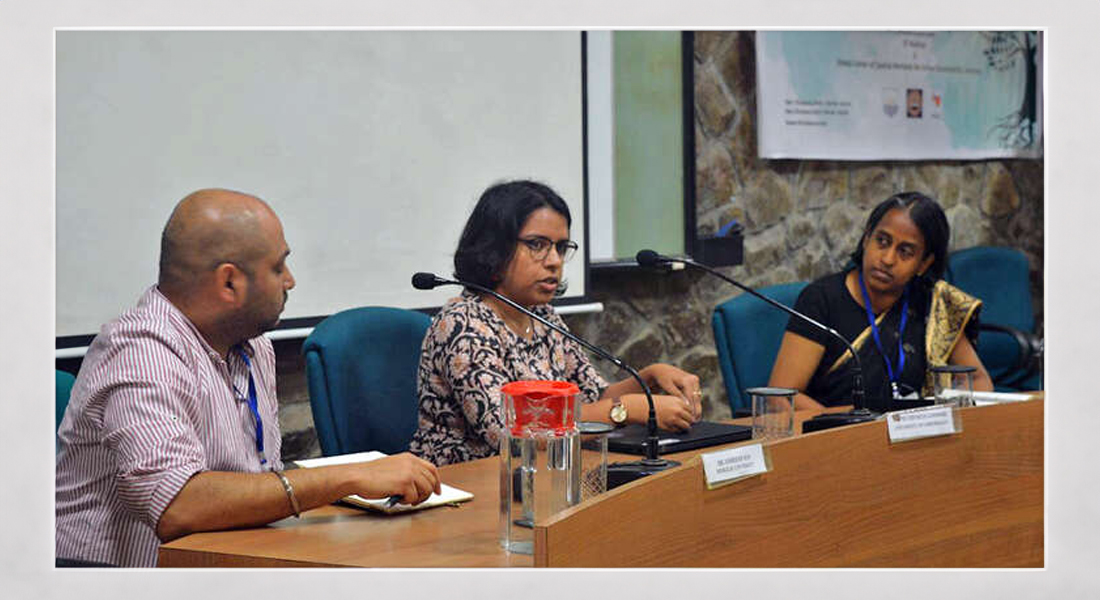COPE researchers at the International Roundtable on Urban Risk and Informality
Last month, COPE researchers Maansi Parpiani and Suchismita Goswami participated in the International Roundtable on Urban Risk and Informality organized by the Jamsetji Tata School of Disaster Studies and the Tata Institute of Social Sciences Mumbai, to discuss the initial framework and findings from the project “Disaster Risk Creation in Urban Resettlement Processes”.

The Jamsetji Tata School for Disaster Studies (JTSDS) of Tata Institute of Social Sciences (TISS) held an International Roundtable on Urban Risk and Informality from 24th to 25th January 2023. The roundtable allowed us to move beyond the common narrative in conceptualizing the urban. To address urban risk and sustainability in disaster studies, extreme events such as floods, earthquakes, cyclones and landslides stood out to be central for exploration. The round table exploration of urban risk started by questioning the city expansion, informalisation and practices of waste generation, collection and management in the city. The conference presented a good mix of representation from academia, civil society members, practitioners and researchers for diverse reflections.
Three members (Somdeep Sen, Maansi Parpiani and Suchismita Goswami) from our project “Disaster Risk Creation in Urban Resettlement Processes” participated in the conference to discuss our initial framework and findings. Maansi presented her research on industrial precariousness in the manufacturing workshops around the Mithi river post 2005 floods in Mumbai. Somdeep and Suchismita presented on a panel on Urban Risk and Informal Housing. This panel was chaired by Prof. Jacquleen Joseph, who is the dean of JTSDS and also a Co-PI on Disaster Risk Creation in Urban Resettlement Processes Project. Apart from presenting a scoping review to showcase themes on emerging urban risks among disaster-induced displaced communities, the panel also reflected on how cities in the global South are regularly at risk due to the aspiration of city-making through a colonial lens which leads to limited negotiations and reflections towards the needs of the poor.
The tonality of the conference was solution based and optimistic. Presentations included examples and discussions on small-scale and larger systemic changes through fieldwork and projects directly managed or led by the speakers. The circularity of waste, economy and creation of mutual vulnerability in the absence of circularity of waste was a returning discourse in the conference. Innovative theories and lenses were brought in by the speakers and the audience to set the scene for critical disaster studies in urban areas.

